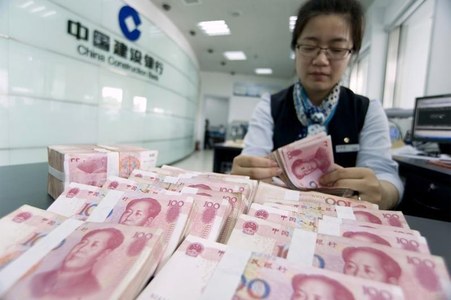Xi Jinping, China's most powerful leader for decades, could stay in office indefinitely after the Communist Party called for the removal of presidential term limits.
Xi, who is also party chief and seen as the country's most formidable ruler since Mao Zedong, has been president since 2013 and the 64-year-old leader would have to step down in 2023 under the current system.
But the party's Central Committee proposed deleting from the constitution the stipulation that a president “shall serve no more than two consecutive terms” of five years, the official Xinhua news agency reported on Sunday.
“I think he will become emperor for life and the Mao Zedong of the 21st century”, Willy Lam, politics professor at the Chinese University of Hong Kong, told AFP.
“If his health permits, he wants to serve 20 years, which would mean until 2032 as secretary general of the party, and 2033 as state president,” Lam said.
The proposed change, which would also apply to the vice president, will be submitted to legislators at the annual full session of the rubber stamp National People's Congress starting March 5. Xi is expected to be given a second term in office during the two-week-long session.
Xi has been chipping away at the collective model of leadership that was promoted by Deng Xiaoping, the architect of the country's economic reforms in the 1980s.
Xi's two predecessors, Jiang Zemin and Hu Jintao, both served two five-year terms, but he has signalled bigger ambitions.
Name in constitution
At the 19th five-yearly Communist Party congress last October, Xi unveiled a new seven-member Politburo Standing Committee — its top ruling body — that lacked any clear heir apparent to him. He was also given the customary second term as party general secretary, a job which does not have a formal term limit.
Xi also saw his eponymous political philosophy — Xi Jinping Thought on Socialism with Chinese Characteristics for a New Era — included in the party's charter, an honour only accorded to one previous leader, Mao, during his lifetime.
The Central Committee also proposed adding Xi's “thought” to the national constitution, joining Mao again.
Since taking over as party general secretary in late 2012, Xi has waged a remorseless battle against corruption, which has seen more than one million people punished. Some also see the campaign as a means for him to eradicate internal opposition.
A major outcome of the 19th Party Congress was the decision to establish a new anti-graft agency, the National Supervisory Commission, that will coordinate investigations at all levels of government and expand its remit to include non-party members.
The Central Committee proposed listing the commission as a new state organ in the constitution.
'Without opposition'
Xi told party officials on Saturday the constitution was key to building a moderately prosperous society, building a modern socialist country and realising the “Chinese dream of national rejuvenation” — his slogan to restore the nation to its former glory.
“No organisation or individual has the privilege to overstep the constitution or the law,” Xinhua quoted him as saying.
Xi is keeping a key ally by his side as he cements power.
The feared former head of the anti-graft agency, Wang Qishan, stepped down from the Standing Committee last October because. at 69, he had reached the traditional retirement age.
But Wang was selected earlier this year as a deputy to the upcoming National People's Congress annual session, fuelling speculation that he could become Xi's vice president or gain some other influential role.
Another ally and new Standing Committee member, Li Zhanshu, could become head of the National People's Congress.
“(Xi) would then ensure that his constitutional reform is adopted without opposition,” said Jean-Pierre Cabestan, China politics specialist at Hong Kong Baptist University.
Xi's presidency has been marked by the return of a personality cult and a major crackdown on democracy and human rights.
Earlier this year the party mouthpiece People's Daily further cemented his elevation by publishing an article that for the first time referred to him as “lingxiu” — a Mao-era honorific with more reverential and spiritual connotations than the ordinary terms.














































